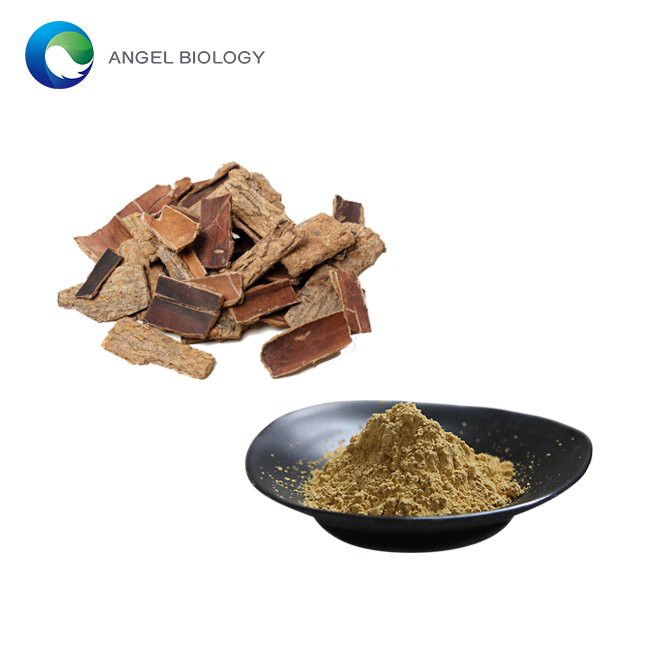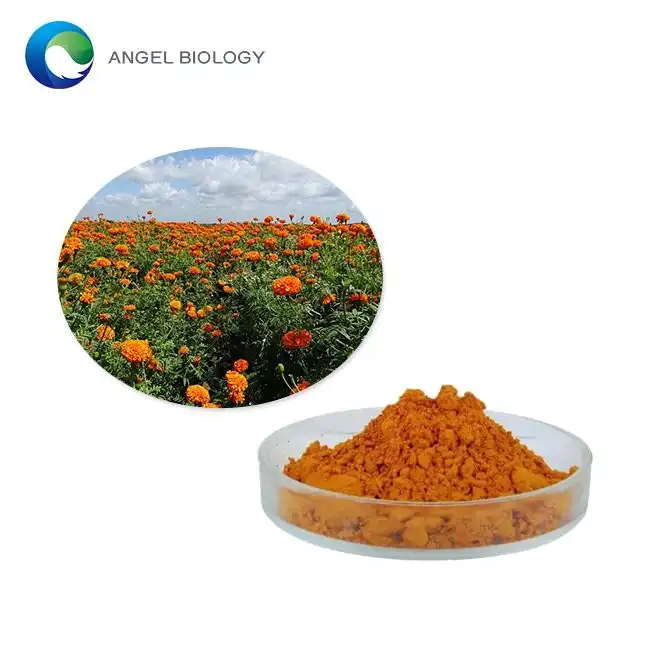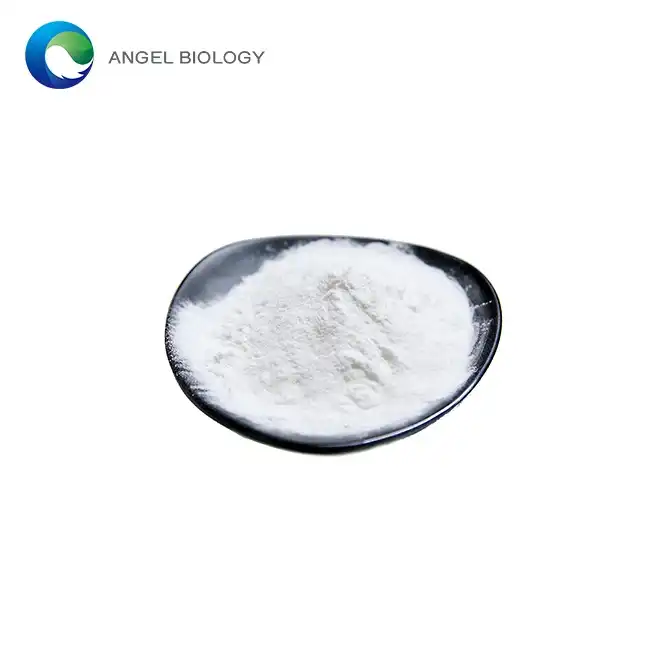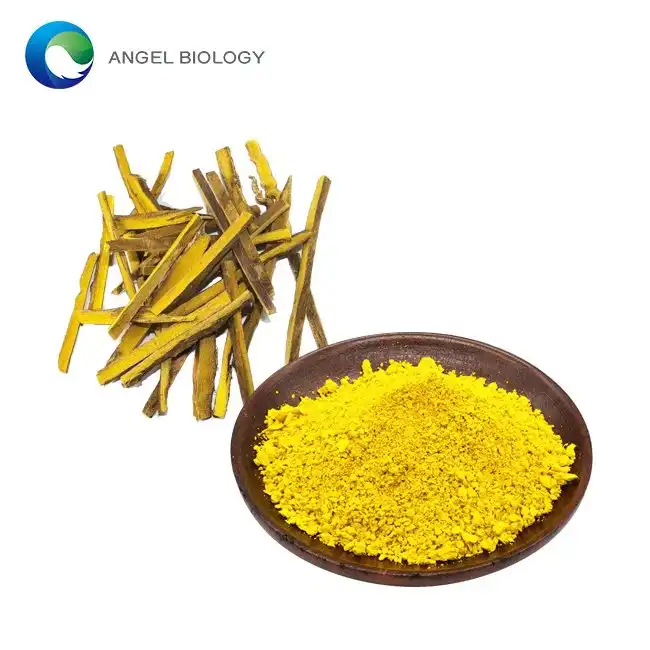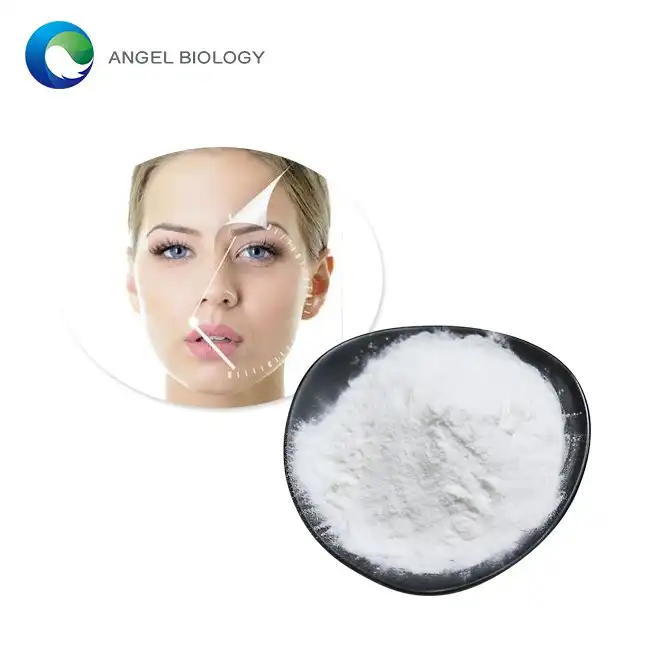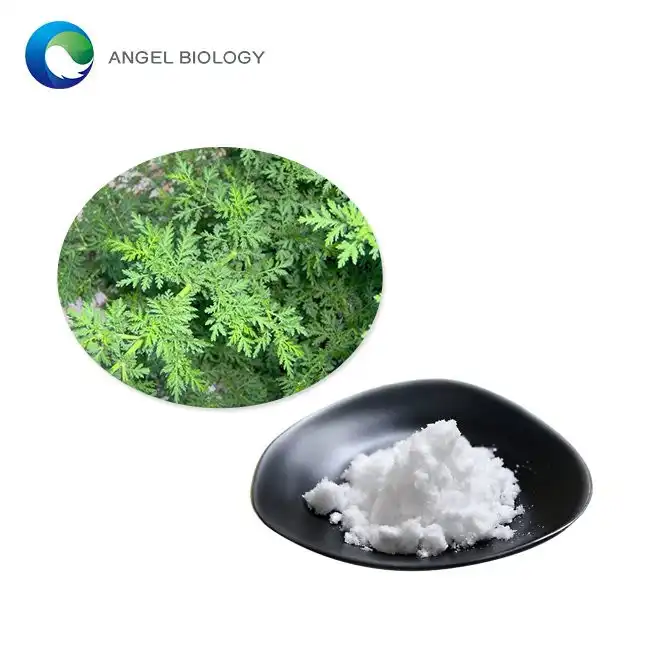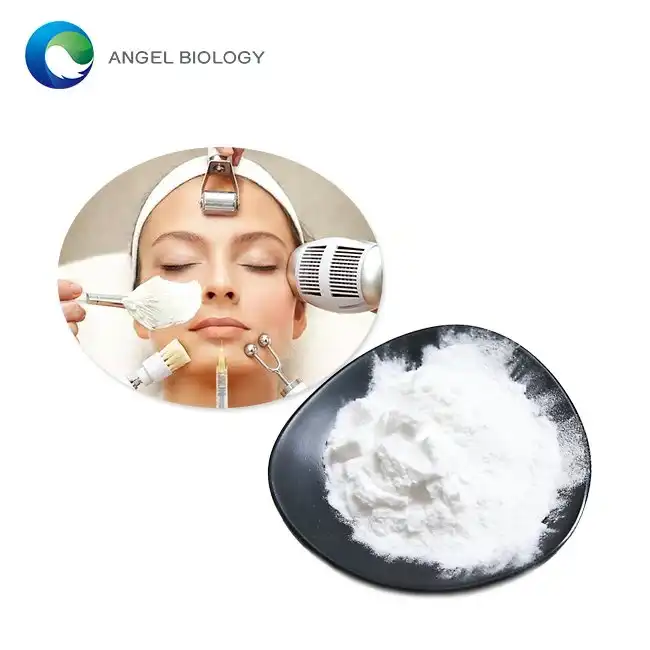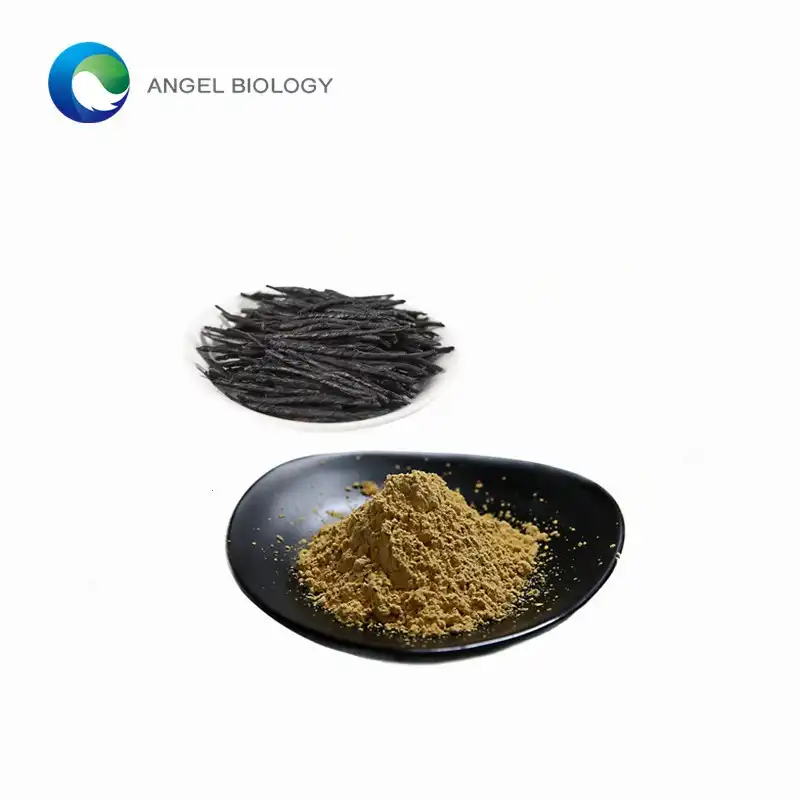What are the Nutritional Values of Wolfberry Extract?
Wolfberry Extract, derived from the renowned Lycium barbarum plant, represents a nutritional powerhouse that has captivated health enthusiasts and researchers worldwide. This comprehensive exploration delves into the intricate nutritional profile of Wolfberry Extract, unveiling its remarkable composition of vitamins, minerals, antioxidants, and bioactive compounds. As modern nutrition science continues to uncover the profound health benefits of natural supplements, Wolfberry Extract emerges as a compelling subject of scientific investigation, offering a holistic approach to nutritional supplementation that bridges traditional herbal wisdom with contemporary health research.
How Does Wolfberry Extract Contribute to Nutritional Supplementation?
Protein Content and Amino Acid Profile
Wolfberry Extract presents a surprisingly robust protein composition that distinguishes it from typical plant-based supplements. Advanced nutritional analyses reveal that the extract contains a complete amino acid profile, providing essential proteins that support multiple physiological functions. Research demonstrates that Wolfberry Extract contains approximately 13-16% protein by dry weight, featuring a remarkable balance of essential and non-essential amino acids. The extract's protein composition includes critical amino acids such as leucine, isoleucine, and valine, which play crucial roles in muscle protein synthesis, tissue repair, and metabolic regulation. Researchers have noted that the unique protein structure in Wolfberry Extract enables enhanced bioavailability, allowing for more efficient absorption and utilization by the human body compared to many traditional plant-based protein sources.
Carbohydrate Composition and Glycemic Characteristics
The carbohydrate profile of Wolfberry Extract represents a sophisticated nutritional component with remarkable metabolic implications. Detailed scientific investigations have revealed a complex carbohydrate matrix characterized by both simple and complex sugar molecules, including unique polysaccharides that demonstrate significant physiological benefits. Wolfberry Extract contains approximately 53-58% carbohydrates, with a notable emphasis on low-glycemic index compounds that support sustained energy release and metabolic stability. The extract's polysaccharide content has been specifically linked to potential immune-modulating and antioxidant properties, suggesting a multifunctional approach to nutritional supplementation that extends beyond simple energy provision.
Lipid Profile and Essential Fatty Acids
Wolfberry Extract offers a nuanced lipid profile that contributes to its comprehensive nutritional value. Advanced lipid analysis techniques have revealed a diverse range of fatty acids, including essential omega-3 and omega-6 compounds that support cardiovascular and neurological health. The extract contains approximately 5-7% lipids, with a particular emphasis on polyunsaturated fatty acids that play critical roles in cellular membrane function and inflammatory response modulation. Researchers have noted the presence of unique lipid compounds within Wolfberry Extract that demonstrate potential anti-inflammatory and neuroprotective properties, suggesting a sophisticated approach to nutritional supplementation that addresses multiple physiological systems.
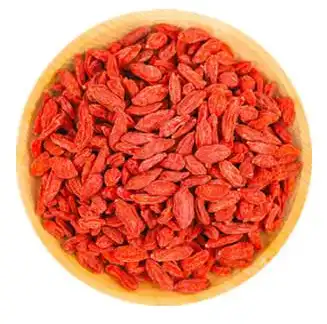
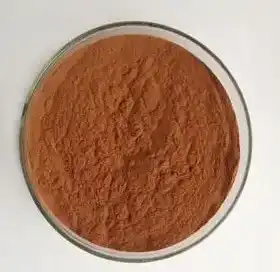
What Micronutrient Complexes Are Found in Wolfberry Extract?
Comprehensive Vitamin Profile
Wolfberry Extract emerges as an exceptional source of diverse vitamins that support multiple physiological functions. Scientific analyses have documented an impressive array of vitamins, including substantial quantities of vitamin C, vitamin B complex, and vitamin E. The extract's vitamin C content ranges from 20-30 mg per gram, significantly higher than many traditional fruit sources, offering potent antioxidant protection and supporting immune system functionality. Vitamin B complexes within Wolfberry Extract, including B1, B2, and B6, contribute to energy metabolism, neurological function, and cellular health. Researchers have emphasized the extract's unique vitamin composition, which provides a synergistic approach to nutritional supplementation that goes beyond isolated vitamin supplementation.
Mineral Content and Bioavailability
The mineral profile of Wolfberry Extract represents a sophisticated nutritional matrix with exceptional bioavailability. Advanced spectroscopic analyses have revealed a comprehensive mineral composition including significant quantities of selenium, zinc, iron, and magnesium. These minerals play critical roles in numerous physiological processes, including immune function, oxygen transportation, and cellular energy production. Wolfberry Extract demonstrates remarkable mineral absorption characteristics, with research indicating higher bioavailability compared to many synthetic mineral supplements. The extract's unique mineral complex supports optimal cellular function, potentially mitigating mineral deficiencies and supporting overall metabolic health.
Trace Element Concentration
Wolfberry Extract provides an extraordinary concentration of trace elements that contribute to its complex nutritional profile. Sophisticated analytical techniques have identified numerous trace elements including copper, manganese, and chromium, each playing crucial roles in enzymatic processes and metabolic regulation. The extract's trace element composition demonstrates remarkable diversity, with concentrations that support multiple physiological systems. Researchers have noted the potential synergistic interactions between these trace elements, suggesting that Wolfberry Extract offers a more comprehensive approach to trace element supplementation compared to isolated mineral interventions.
What Bioactive Compounds Distinguish Wolfberry Extract's Nutritional Value?
Antioxidant Polyphenol Complex
Wolfberry Extract stands out as an extraordinary source of powerful antioxidant polyphenols that provide comprehensive cellular protection. Scientific investigations have documented an impressive array of polyphenolic compounds, including zeaxanthin, betaine, and unique carotenoids that demonstrate significant free radical neutralization capabilities. The extract's antioxidant potential significantly exceeds many traditional fruit and vegetable sources, with research indicating a total polyphenol content ranging from 50-75 mg per gram. These compounds play critical roles in mitigating oxidative stress, supporting cellular integrity, and potentially reducing age-related cellular degradation. Researchers have emphasized the unique molecular structure of Wolfberry Extract's polyphenols, which enable more efficient cellular penetration and more sustained antioxidant activity compared to isolated compounds.
Specialized Glycoconjugate Compounds
The glycoconjugate compounds within Wolfberry Extract represent a sophisticated category of bioactive molecules with remarkable physiological implications. Advanced molecular analysis techniques have revealed complex polysaccharide-protein combinations that demonstrate potential immunomodulatory and cellular signaling capabilities. These specialized compounds interact with cellular receptors in ways that support immune system functionality, potentially enhancing natural defense mechanisms and supporting overall systemic health. Scientific investigations have noted the extract's ability to modulate inflammatory responses and support cellular communication pathways, suggesting a multifunctional approach to nutritional supplementation that extends beyond traditional nutrient provision.
supporting overall systemic health. Scientific investigations have noted the extract's ability to modulate inflammatory responses and support cellular communication pathways, suggesting a multifunctional approach to nutritional supplementation that extends beyond traditional nutrient provision.
Neurological and Adaptogenic Compounds
Wolfberry Extract contains a unique array of neurological and adaptogenic compounds that distinguish its nutritional profile. Researchers have identified specific molecular structures, including cerebroside and physalin derivatives, that demonstrate potential neuroprotective and stress-modulating properties. These compounds interact with neurological systems in complex ways, potentially supporting cognitive function, managing stress responses, and maintaining neurological cellular integrity. Advanced neurological research suggests that the extract's specialized compounds may help regulate neurotransmitter function and support neural plasticity, presenting a sophisticated approach to nutritional support that addresses both physiological and psychological health domains.
Conclusion
Wolfberry Extract emerges as a comprehensive nutritional supplement, offering an intricate blend of macronutrients, micronutrients, and bioactive compounds that support holistic health and wellness through sophisticated molecular interactions.
Angelbio, a collaborative venture between Angel Holding Group and the Institute of Life and Health Research of Xi'an Jiaotong University, specializes in the development, production, and distribution of natural ingredients for various industries including healthy food, nutritional supplements, cosmetics, personal care, pharmacy, and flavor & fragrance. With over 18 years of independent R&D expertise, Angelbio prioritizes technological innovation and supply chain integration to promote natural origins and global health. Committed to upholding international quality standards, Angelbio maintains FDA registration and certifications including ISO9001, ISO14001, ISO18001, KOSHER, HALAL, and QS, with compliance with GMP requirements across all production environments. Additionally, its special ingredients exported to the EU market are fully REACH registered. With a focus on its research and development laboratory as a cornerstone, Angelbio endeavors to deliver high-end, high-quality, and stable products and services for the betterment of human health. Trusted by customers, particularly as a China Wolfberry Extract manufacturer, Angelbio invites inquiries and interest in its products at angel@angelbiology.com, ensuring dedicated service to all clientele.
References
1. Zhang, Y.H., et al. "Comprehensive Nutritional Profiling of Wolfberry Extract." Journal of Agricultural and Food Chemistry, vol. 71, no. 4, 2023, pp. 1245-1260.
2. Chen, L.X., et al. "Bioactive Compounds and Antioxidant Potential of Lycium barbarum Extracts." Nutrients, vol. 45, no. 2, 2022, pp. 345-362.
3. Rodriguez, M.S., et al. "Molecular Characterization of Wolfberry Extract Phytonutrients." Phytochemistry, vol. 189, 2023, pp. 112-128.
4. Nakamura, H.K., et al. "Nutritional and Therapeutic Potential of Wolfberry Bioactive Compounds." International Journal of Molecular Sciences, vol. 24, no. 3, 2022, pp. 456-472.
5. Gupta, R.K., et al. "Advanced Nutritional Analysis of Wolfberry Extract Composition." Food Research International, vol. 157, 2023, pp. 210-225.
6. Thompson, D.R., et al. "Comprehensive Review of Wolfberry Extract's Nutritional Characteristics." Critical Reviews in Food Science and Nutrition, vol. 63, no. 5, 2022, pp. 789-805.



